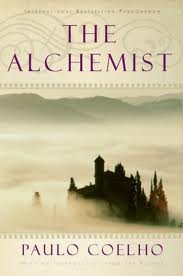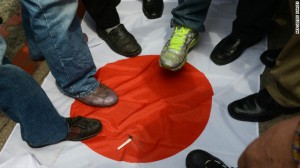My former student Lizhu sent an email in mid-October. This son of northeastern China friend is now living in Montreal, pursuing a Doctoral degree in something I only vaguely understand. One of his surprised observations was that “the heat is already on here even though it is above ten degrees”. My reply explained that, in Canadian cities, home heating is not administered by local authorities. In China, most homes north of the Yangtze River are heated centrally, mainly by municipal coal-fired plants. (South of that, you’re on your own, and there are occasional runs on electric space-heaters. Walmart be praised.)
A week ago last weekend was our area’s coal-truck Grand Prix. From our apartment’s south windows, we had a clear view, within easy range of the throwing arm I used to have, of the delivery doors of the furnace for our district. Its chimney will soon belch black, but our welcome to winter was the sounds of the dark-humped coal trucks barrelling up the hilly ring-road that serves our apartment complex. A small band of arm-wavers, from the complex’s guard crew and from the central heating department, guided the trucks up the narrow lane and dissuaded the cars that think they live here. The turning radius was small, the incline steep, so there was a lot of gearshift grinding, but these guys know what they’re doing. No Toyotas were crushed, no Benzes were dented, though I’m getting coal grit in my sneakers when I run down the hill, late for school.
Some preliminary whiffs of black have come from the chimney, and not long afterward we heard waterworks in our main radiator most of one day as the building’s hot-water pipes were flushed and tested. In our usual ex-pat ignorance, though, we don’t know what the plan is for when heat will be available in our apartment. Two falls ago, the date was a clearly mandated November 15 1, but the first last two weeks of November October were snappin’ cold, and we were bundling up (even though we’re chauvinists about our Canadian resistance to chill). Parts farther north have had some brutal cold and snow, so I can only hope that their mandarins have seen fit to move up the best-be-warm date.
A cold wind and lashing rain yesterday brought fantasies of hearth and woodstove, but we settled for hoodies. One of my teaching rooms at school was particularly chilly yesterday, so I spent part of the lesson in my parka shell. (Yes, a bitterly shameful pill for Tough Guy Canuck to swallow.) Today, the sun is back and our living room window is giving some warmly passive solar on a 10 degree day. Soon, though, we will have an official, red-stamped governmental confirmation that winter has arrived in Dalian.
[With editorial revision from the Punctuality Princess added after the original post. D’oh.]





